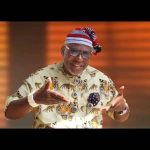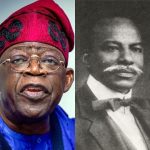The defection of opposition politicians to the ruling All Progressives Congress (APC) in Nigeria, while seemingly a political maneuver, carries significant implications for national security. This isn’t a direct and immediate armed threat, but rather a subtle erosion of democratic institutions that can, over time, lead to profound instability and create an environment ripe for various security challenges.
A strong opposition is fundamental to a healthy democracy. When opposition figures defect en masse, the ruling party faces less scrutiny and accountability. This can lead to unchecked executive power, abuse of office, and a breakdown of the separation of powers. If defections are seen as a way to escape prosecution for corruption or other offenses, it signals that the rule of law is weak and selectively applied. This fosters a culture of impunity, where politicians believe they can act without consequences as long as they align with the ruling party.
When citizens perceive that their votes don’t matter, or that politicians are simply self-serving opportunists switching sides for personal gain, it erodes trust in the democratic process. This disillusionment can lead to cynicism, apathy, and ultimately, a detachment from the state.
Increased Political Instability and Social Unrest: A weakened opposition means fewer avenues for legitimate grievances to be channeled and addressed within the political system. This can lead to widespread frustration, especially among supporters of the opposition, who may feel their voices are silenced. If democratic avenues for change are perceived as blocked or compromised, it can create fertile ground for non-state actors or disaffected groups to resort to violence or other disruptive actions to express their discontent. This could manifest as protests turning violent, regional agitations, or even a resurgence of armed groups.
Nigerian politics is often intertwined with ethnic and religious identities. If defections are perceived as favoring one group or region at the expense of others, it can exacerbate existing fault lines and lead to increased communal tensions, which have historically fueled violence in Nigeria.
Governance Failure and Economic Stagnation: In a near one-party state, there is less pressure on the ruling party to perform. Without the threat of a strong opposition offering alternative policies, governance can become complacent and less responsive to the needs of the populace. A lack of accountability can lead to increased corruption and the misallocation of state resources for political patronage rather than essential public services and development. This can further entrench poverty and inequality.
Effective national security requires robust institutions, adequate funding, and public trust. If governance is compromised by political maneuvering and corruption, efforts to reform and strengthen the security forces (police, military, intelligence) may be undermined, making the nation less equipped to tackle existing security threats like terrorism, banditry, and kidnapping. Economic stagnation often creates unemployment, especially among youth, providing a ready pool for recruitment by criminal or extremist groups.
The Stockholm Syndrome in Nigerian Politics: I have experienced the concept of Stockholm Syndrome, when securing oil and gas assets in the Niger Delta. That involved an expatriate who after being kidnapped and after necessary negotiation for his freedom, refused to leave the militant camp in the creeks. A brief definition will be useful here. Stockholm Syndrome is a psychological phenomenon where hostages or victims develop a psychological bond and feelings of trust or affection towards their captors or abusers. This can include positive feelings, sympathy for their captors’ beliefs or behaviors, and sometimes even negative feelings towards authorities attempting to rescue them. It’s often seen as a coping mechanism or survival strategy in extreme, emotionally charged, and prolonged captive or abusive situations, where the victim’s life is perceived to be in the hands of the abuser, and small acts of kindness can be misinterpreted as genuine care.
Relating to Nigerian Political Defections: Applying Stockholm Syndrome directly to the defection of Nigerian opposition politicians to the ruling All Progressives Congress (APC) is a metaphoric and arguably a strong comparison, as it’s not a literal hostage situation. However, one could draw parallels in the following ways:
In our Nigerian political landscape, the ruling party (APC) holds significant power, including control over state resources, appointments, and influence over anti-graft agencies. Opposition politicians, especially those who may be facing investigations or feel sidelined in their own parties, might perceive themselves in a vulnerable position, creating a perceived power imbalance. For some politicians, defecting to the ruling party can be seen as a “survival strategy” to secure their political future, avoid prosecution, or gain access to power and resources. This might be akin to a victim developing a relationship with their “captor” (the dominant party) to ensure their well-being or progress.
The ease with which politicians switch from one party to the other, shows that they don’t have any ideological leaning. It has become a transactional switch rather than ideological. It brings to the fore, the perceived lack of strong ideological differences between parties. Defections are often driven by personal gain, access to power, or “greener pastures” rather than a fundamental shift in political beliefs. This could be loosely compared to the Stockholm Syndrome aspect of “adopting” the captor’s worldview out of perceived necessity or benefit, rather than genuine conviction.
The ruling party might offer incentives, such as ministerial positions, party tickets, or a reprieve from legal troubles, which could be seen as “kindness” or “benevolence” by a politician who feels threatened or marginalized in the opposition. It’s crucial to note that this is an analogy and not a clinical diagnosis of the Stockholm Syndrome.
Addressing this complex national security threat requires a comprehensive and long-term strategy focused on strengthening democratic resilience. I listened to some of the speakers at the symposium for Democracy Day, and most of them recommendations that aligns with the following:
The Independent National Electoral Commission (INEC) and the Judiciary must rigorously and impartially apply constitutional provisions and electoral laws regarding defections. This includes sanctioning politicians who defect without justifiable reasons and ensuring that such defections lead to loss of seats where applicable. This would serve as a deterrent. However, there have to be political will to do this, as the ruling APC is busy welcoming the defectors.
Further reforms to the Electoral Act to improve transparency, reduce the influence of money in politics, and ensure truly free and fair elections will boost public confidence and make it harder for the ruling party to absorb opposition figures through illicit means. This includes strengthening electronic voting and transmission of results. A group in Nigeria, like the National Electoral Reform Coalition (NERCO) is being vocal about enforcing the use of electronic voting, to show more transparency in INEC.
Stricter rules and enforcement on campaign finance can curb the use of state resources or illicit funds to entice defections. A genuine multi-party system can be promoted. Civil society organizations, media, and international partners can play a role in advocating for and supporting the growth of independent and ideologically driven opposition parties. This can involve capacity building, voter education, and monitoring of political activities.
It is time for the political parties to adopt transparent and democratic internal processes, including credible primaries for selecting candidates. This reduces internal grievances that often spur defections.
Ensure the true independence, funding, and operational autonomy of anti-graft agencies (e.g., EFCC, ICPC) to investigate and prosecute corruption without political interference, regardless of the accused’s party affiliation. This would eliminate the incentive to defect to avoid prosecution. A truly independent judiciary is the ultimate arbiter in a democracy. Protecting judicial autonomy and ensuring its capacity to deliver justice fairly and efficiently is crucial.
Strengthen the oversight functions of the National Assembly and state Houses of Assembly to hold the executive accountable, even with a dominant ruling party. This might require constitutional amendments to grant more powers to committees and ensure diverse representation.
The illiteracy rate in Nigeria in 2024 is about 59.57%. Stark differences exist between rural and urban areas. So, educating citizens on the importance of an active and critical opposition, the dangers of a one-party dominance, and their role in demanding accountability from their elected officials, becomes an uphill task. Also remember that the spoiler could be, addressing the popular Nigerian, political lingo of “Stomach Infrastructure.”
There must also be a deliberate support and protection of independent media and civil society organizations as watchdogs. They play a critical role in exposing political malpractices, raising public awareness, and advocating for democratic norms. We also should encourage citizens to resist being swayed by financial inducements or political promises that lack substance, and to vote based on performance and policy.
Addressing Root Causes of Instability: All these recommendations are fine and good. However, there are fundamental issues that need to be addressed. These fundamentals, which are also the root cause of insecurity include; high unemployment, particularly among youths. Promoting inclusive economic growth can reduce the pool of individuals susceptible to political manipulation or recruitment into criminal enterprises.
Continue to reform and professionalize the Nigerian security forces, ensuring their neutrality and adherence to human rights, rather than being perceived as tools of political suppression. Can we ensure that government policies and appointments reflect the diversity of Nigeria, promoting a sense of inclusion and reducing feelings of marginalization that could fuel discontent? These steps can move Nigeria away from the path of a potential de facto one-party state, thereby mitigating the underlying national security threats posed by such a political trajectory and fostering a more stable, just, and prosperous nation.
Dennis Amachree, MON, dfisn Retired Director DSS & Security Consultant Writes from the USA
















We are watching them. There was a country. Naija politicians are cawords. Selfish and lacks integrity. One party system can never survive in this country. The country is warming up for disintegration